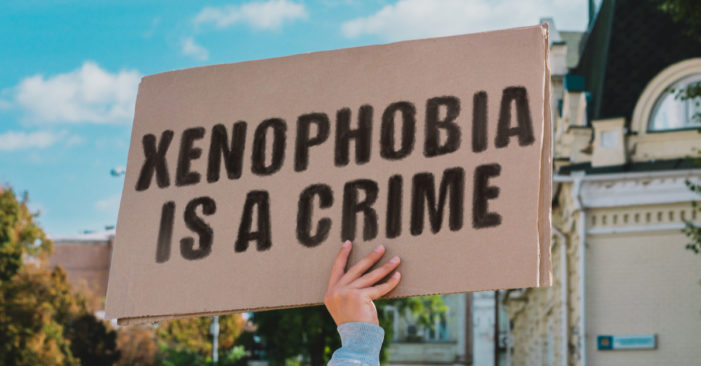By Natalie Escobar, NPR
The global response to COVID-19 has made clear that the fear of contracting disease has an ugly cousin: xenophobia. As the coronavirus has spread from China to other countries, anti-Asian discrimination has followed closely behind, manifesting in plummeting sales at Chinese restaurants, near-deserted Chinatown districts and racist bullying against people perceived to be Chinese.
We asked our listeners whether they had experienced this kind of coronavirus-related racism and xenophobia firsthand. And judging by the volume of emails, comments and tweets we got in response, the harassment has been intense for Asian Americans across the country — regardless of ethnicity, location or age.
A common theme across our responses: Public transit has been really hostile. Roger Chiang, who works in San Francisco, recalled a white woman glaring at him on the train to work, covering her nose and mouth. When he told her in a joking tone that he didn’t have the coronavirus, she replied that she “wasn’t racist — she just didn’t want to get sick.”
Allison Park from Brooklyn told us that when visiting D.C., she saw a man making faces at her on the Metro train. She tried to move away from him, but he wouldn’t stop. After a while, she said, he confronted her outright, saying: “Get out of here. Go back to China. I don’t want none of your swine flu here.” A week later, on a Muni train in San Francisco, another man yelled the same thing to her — “Go back to China” — and even threatened to shoot her.
Even a single cough or sneeze can trigger harassment. Amy Jiravisitcul from Boston said a man on a bus muttered about “diseased Chinese people” when she sneezed into her sleeve. When she confronted him, he told her: “Cover your fucking mouth.” When South San Franciscan Diane Tran sneezed into her elbow in a hallway in a hospital, where she was getting a flu shot, she said a middle-aged white woman yelled a racist slur at her.
Children have been targeted, too — by other children and adults alike. Devin Cabanilla, from Seattle, told us that a Costco food sample vendor told his Korean wife and mixed-race son to “get away” from the samples, questioning whether they had come from China. Company executives later apologized to his family, but he’s still shaken. “It just reminds me that when people look at us, they don’t see us as American,” he said.
Thirteen-year-old Sara Aalgaard told us that since the outbreak, many middle-school classmates of hers have been targeting the small population of Asian Americans at her school in Middletown, Conn. “People call us ‘corona,’ ” she said, or ask if they eat dogs. Rebecca Wen from North Brunswick, N.J., told us that her 9-year-old son reported that his 11-year-old classmate said: “You’re Chinese, so you must have the coronavirus.”
The anti-Asian harassment isn’t limited to the U.S., either. International outlets have reported harassment in majority-white countries like Australia, where parents in Melbourne refused to let Asian doctors treat their children, and Canada, where around 10,000 Toronto-area people signed a petition calling for the local school district to track and isolate Chinese-Canadian students who may have traveled to China for the Lunar New Year.
In Germany, Thea Suh said that when she sat down on her train to work, the person sitting next to turned away from her and covered his face. A few days later, a woman told her to move her “corona-riddled body” elsewhere. Not once did someone step in to help, she said. “I have also not seen or heard any German politician or major influencer coming to our defenses,” she said. “And I feel like as a part of the so-called model minority, we are being left alone.”
That’s another common theme from the responses we got: Witnesses and bystanders were slow to intervene. Allison Park remembers that when the man on the D.C. Metro told her to go back to China, the train was nearly two-thirds full, but no one said anything. At best, she got some sympathetic looks. Amy Jiravisitcul said that the other passengers ignored the yelling, which made her wonder whether they thought she was just making a scene.
And when the harassment has passed, unease still lingers. Jane Hong from New York told us that when she and a fellow Korean American were walking from lunch, she heard a man screaming “yuck” in their direction. Now, she notices whenever people on the street look at her for more than a passing glance.
“I don’t know if ‘paranoid’ is the word,” Hong said. “Now it’s in my head. I wonder if they are thinking, ‘I have to stay away from her, I don’t want to walk near her.’ Now that the seed has been planted in my head, it’s hard to not have that thought cross my mind.”

